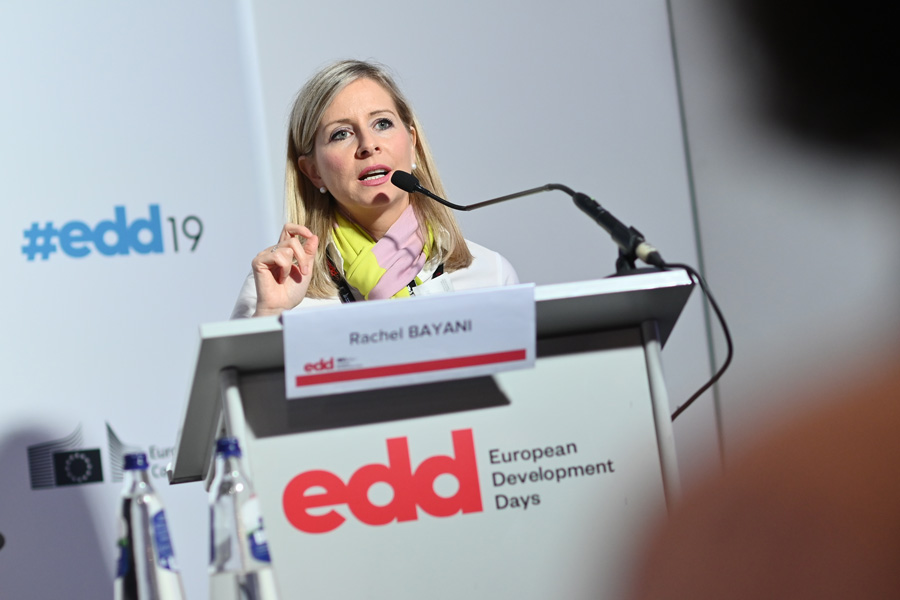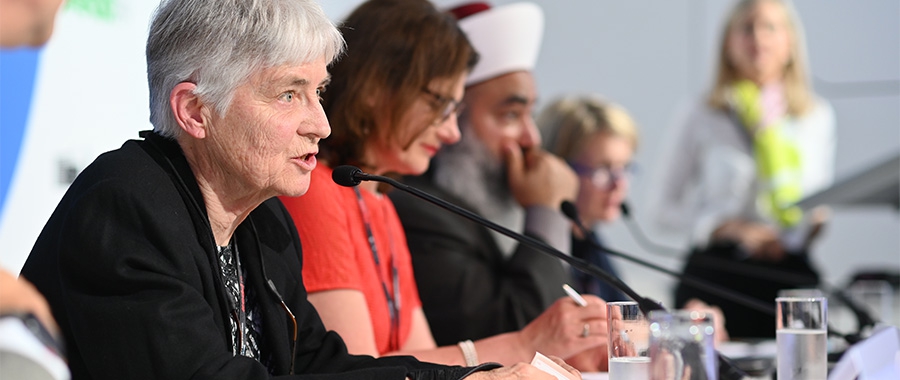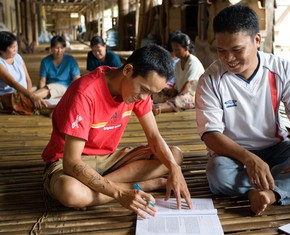Last week, Europe’s foremost annual conference on social and economic development brought together more than 8,000 participants, among them societal leaders and non-governmental organizations, to tackle the issue of global inequalities.
The conference, called European Development Days (EDD), reflected a shift that is occurring in development thinking. There is a growing recognition that social and economic development should not be viewed as an activity one group carries out for another. Nor is it any more viable to ignore the spiritual aspirations and convictions of a population and the vital contribution religion makes to development.
“It is not acceptable to see the masses of humanity as passive recipients of aid,” explained Rachel Bayani, representative of the Baha’i International Community (BIC) and moderator of one of the EDD panel discussions called “What’s religion got to do with it?”, held on 18 June. “Whatever the nature of the support from outside, development activity should emerge from within a community and belong to the people and institutions that are implementing it.”

Rachel Bayani, the Representative of the Brussels Office of the Baha’i International Community moderated the discussed titled, “What’s religion got to do with it?”. (Credit: EDD Brussels)
Co-organized by World Vision International, ACT Alliance, Islamic Relief Worldwide, Brot fir die Welt, EU-CORD Network, and the BIC, the panel explored how religious groups and faith-based organizations constitute a major component of local capacity in many settings.
“Faith and religion are what motivate most people in the world, for good or for ill. It’s hard to see how a development activity can emerge and belong to the people on the ground if those essential elements are not part of the equation,” Mrs. Bayani asserted in her opening remarks.
Six panelists from Europe, South America, and Asia, joined a packed room in a discussion that sought to move beyond simplistic conceptions of religion as either good or bad in the context of development. The discussion conveyed a more nuanced understanding, allowing for a genuine exploration of religion’s potential for constructive transformation.
Rev. Christo Greyling of World Vision International described the importance of working with local faith communities to create development policies and practices together, taking into consideration the aspirations, hopes, and beliefs of the true stakeholders—local populations. “You need to start specifically with the universal principles of the values that they already agreed on, values such as the dignity of human being, the need to stand up for justice,” Rev. Greyling said.
The importance of empowering local populations was echoed by other panelists, such as Henriette Geiger, with the European Commission’s Directorate-General for International Cooperation and Development: “Nothing can be imposed from the outside. You can only work with what you have locally.”
Other speakers highlighted the need to decouple religion and tradition and to see that many prevalent beliefs and practices in a population do not originate from religious scripture. “We need to read and understand the texts with more progressive and open minds and think of what is real religion, which is about spiritual things … and not go into the trap of tradition that is presented as religion,” said Mohammad Abou Zeid, a senior judge from the Family Court of Saida, Lebanon.
The space opened a rich discussion between religious actors and policymakers, bridging a historical divide that has proven unproductive and harmful for meaningful progress. More than 70 people attended the event. The panel discussion can be heard here.
















Comments
Sign in or create an account
Continue with Googleor